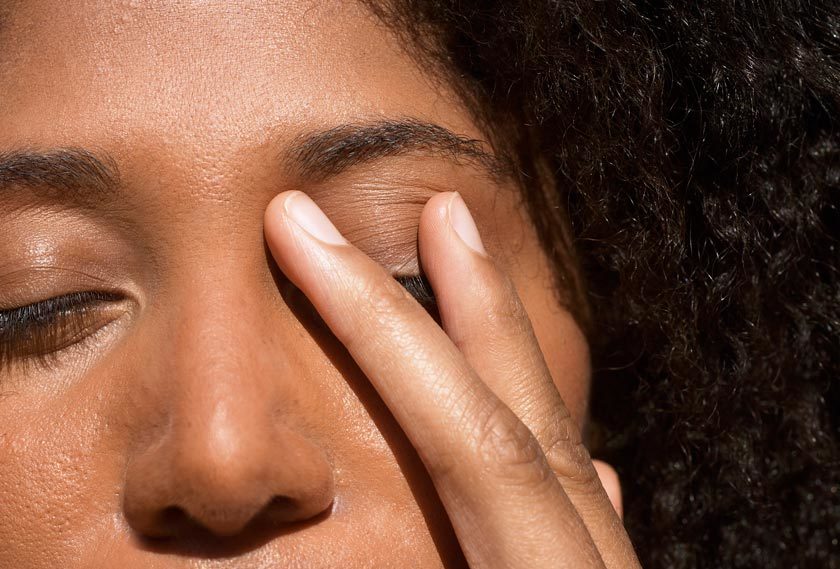Your eyes are your windows to the world. That’s why, no matter your age or the time of year, it’s vital to protect them from the sun’s rays, especially if you are taking medicine that makes your eyes more vulnerable to sun damage.
When you start taking a new medication, you want to talk with your doctor or pharmacist to understand the potential side effects it may cause. You’ve heard the laundry lists of possible side effects spoken in rapid-fire voiceover at the end of TV commercials, but a common one you may not know much about is sun sensitivity, or photosensitivity, and how it can affect your eyes.
Photosensitivity is a side effect of many kinds of medications, including some antibiotics, retinoids and nonsteroidal anti-inflammatory drugs (NSAIDs) like ibuprofen. These medicines may cause your skin to react in an abnormal way — with redness, irritation, rash or even blisters — when exposed to ultraviolet (UV) light from the sun or a tanning bed. But photosensitivity doesn’t just affect skin. Your eyes can also become sun sensitive from using certain medications. This light sensitivity can cause inflammation, squinting, burning, excessive eye watering and can make going outside — even for a few moments or while it’s overcast — difficult and painful.
Hydroxychloroquine, for example, is one medication that can cause significant sun sensitivity in the eyes. This drug is used primarily to prevent or treat malaria but has also gained traction as a treatment for unresponsive cases of certain autoimmune diseases. It has also been used as an off-label treatment for COVID-19 despite a lack of consensus on its efficacy. Patients who take hydroxychloroquine may experience light sensitivity along with other vision changes, and the likelihood of experiencing these side effects goes up if the patient is using the medication long-term.
Many of the same drugs that cause skin photosensitivity can also make eyes sensitive to the sun, including tetracycline, quinidine and fluorouracil. When some topical antiaging products containing alpha hydroxy acids (AHAs) or retinols, for example, cause photosensitivity, it’s easy to just stop using them, or use them only at night, when sensitivity won’t be a problem. But many medications taken for medical reasons, such as hydroxychloroquine, cannot simply be discontinued. Knowing how to protect your eyes is imperative.
Protect Your Eyes
The first and most effective way to protect your eyes while taking a medication that can make them photosensitive is to wear UV-blocking sunglasses. Choose shades that block 99 to 100 percent of both ultraviolet A (UVA) and ultraviolet B (UVB) light for broad-spectrum protection.
Wearing a hat with a brim of at least three inches all around can shield your sensitive eyes and eyelids from UV rays, providing a great supplement to protective eyewear.
Other Resources
If you’re concerned that a medication you’re taking is causing your eyes or your skin to become even the slightest bit sun sensitive, speak to your doctor and ask about potential alternatives or tips for reducing this side effect.
See a list of medications that include photosensitivity as a potential side effect here.
To protect your skin and eyes, consult our complete Sun Protection Guide.
Keep an eye out for The Skin Cancer Foundation’s Seal of Recommendation while shopping; you can be confident that products with the Seal provide safe and effective sun protection. For recommended products, see our Sun Protection Product Finder.




